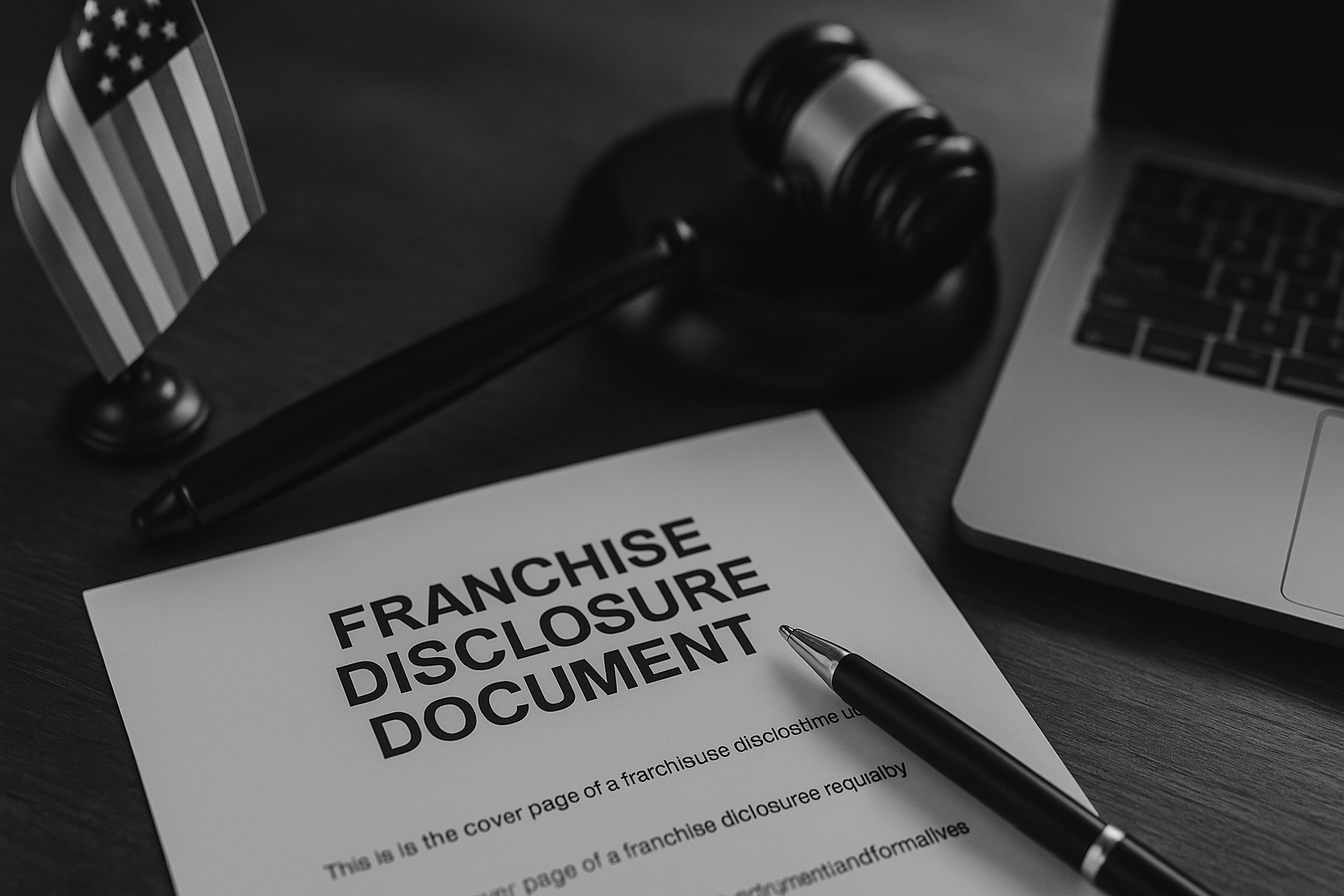What Is a Franchise Disclosure Document (FDD)?
Quick Answer
A Franchise Disclosure Document (FDD) is a legal document that franchisors in the United States must provide to prospective franchisees before any sale. It outlines essential information about the franchisor, the franchise system, fees, legal history, financial performance, and other disclosures to help franchisees make an informed decision.
Breaking Down the Definition
A Franchise Disclosure Document (FDD):
- Is required by U.S. federal law (FTC Franchise Rule)
- Contains 23 mandatory disclosure items
- Must be given to prospective franchisees at least 14 days before signing
- Is designed to promote transparency and informed decisions
It is not a contract itself but a pre-sale disclosure tool. It includes or is often accompanied by a sample Franchise Agreement.
Why It Matters
The franchise disclosure document is the cornerstone of franchise transparency and trust. For entrepreneurs looking to buy into a franchise system—whether in food service, real estate, education, or fitness—the FDD is their best tool to:
- Understand the costs and obligations of the franchise
- Evaluate the franchisor’s track record, legal disputes, and stability
- Compare franchise opportunities objectively
For franchisors, the franchise disclosure document is a compliance document that protects them from future litigation by disclosing all necessary risks and data upfront.
Industries where franchise disclosure documents are essential include:
- Hospitality and food chains (e.g., cafes, fast food brands)
- Retail and personal services (e.g., salons, tutoring centers)
- Real estate and brokerage franchises
Legal or Practical Implications
A franchise disclosure document affects both legal compliance and practical operations. Here’s how:
- Contract Drafting: The information disclosed in the franchise forms the basis of the Franchise Agreement. Items like royalties, territory, and obligations must align.
- Risk Allocation: The franchise disclosure document requires disclosure of lawsuits, bankruptcy, and defaults. This informs the franchisee’s risk profile.
- Negotiation Dynamics: While franchise agreements are often non-negotiable, insights from the FDD help franchisees ask smarter questions and negotiate limited terms (e.g., territory exclusivity).
- Jurisdictional Variations: U.S. federal law mandates the FDD, but some states like California, New York, and Illinois require additional filings or registration before franchising in their jurisdictions.
- International Note: In non-U.S. jurisdictions, the equivalent document may go by other names (e.g., Franchise Offering Circular), or not be mandatory at all.
Example Clause or Use Case
Scenario: A consulting client is considering a franchise opportunity with a global fitness brand expanding into the UAE. The franchisor shares its U.S. FDD as part of the disclosure process.
Key Insight: The client notices in Item 19 that the franchisor does not provide financial performance representations. However, Item 3 discloses a recent lawsuit by franchisees alleging misrepresentation.
Legal Advice Given:
- Clarify why no financial data is provided and what benchmarks can be relied on instead.
- Evaluate the impact of the lawsuit on future brand growth.
- Confirm if UAE-specific franchise regulations require separate disclosure.
Takeaway: Even when used outside the U.S., the FDD gives valuable red flags and insights.
Call-to-Action
If you’re considering buying a franchise or preparing to offer one, understanding the FDD is critical. Our legal team helps founders review and prepare FDDs that are not only compliant but franchisee-friendly.
Need help reviewing an FDD? Book a consultation or download our free FDD checklist.



Leave a Reply